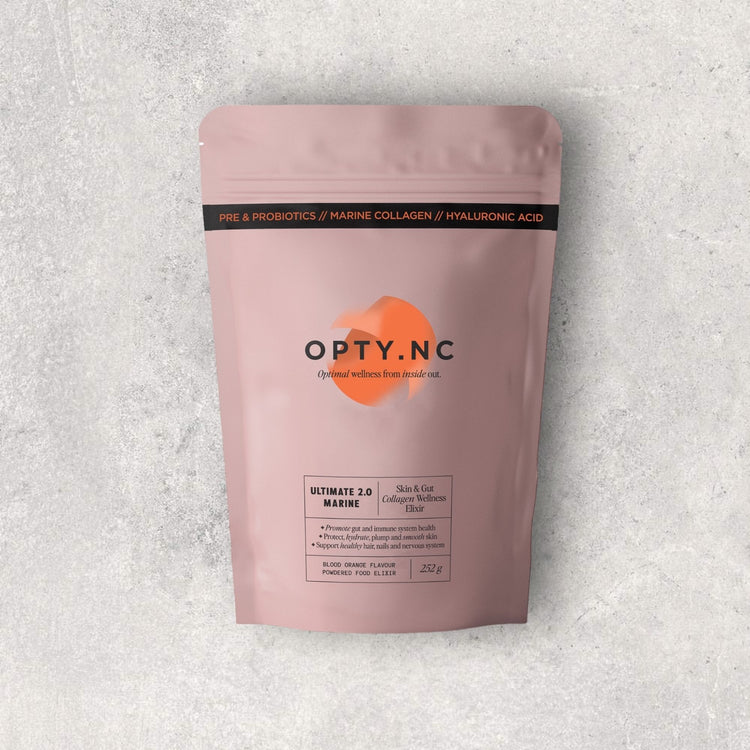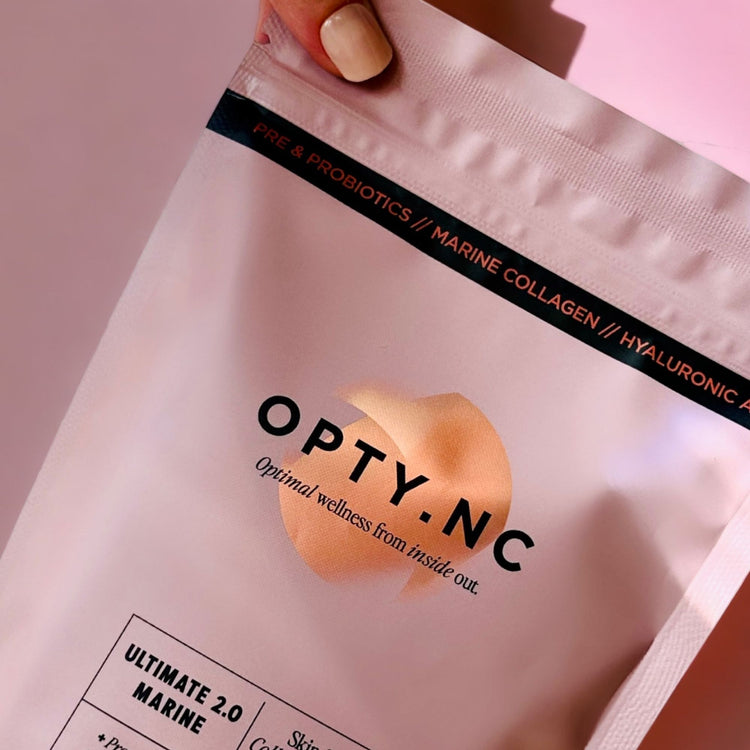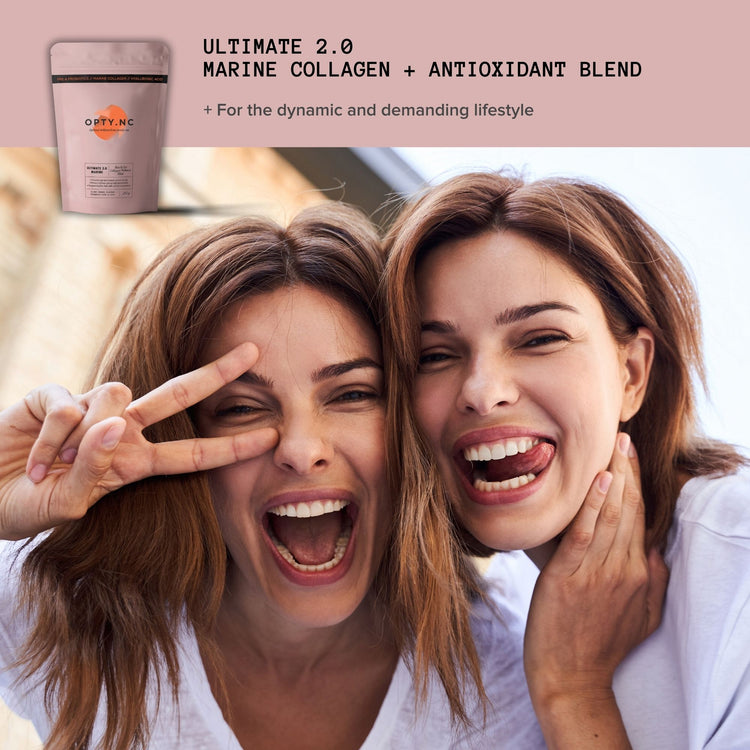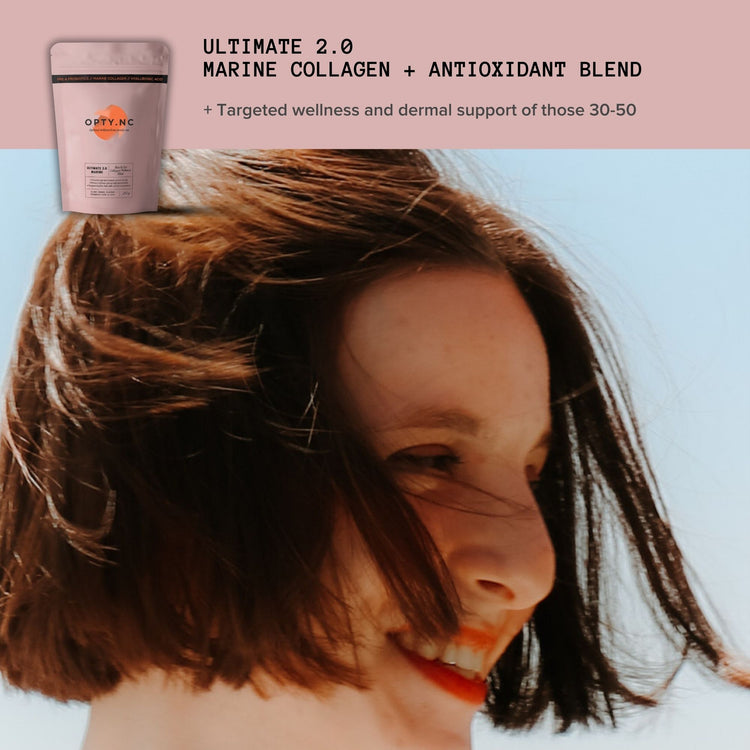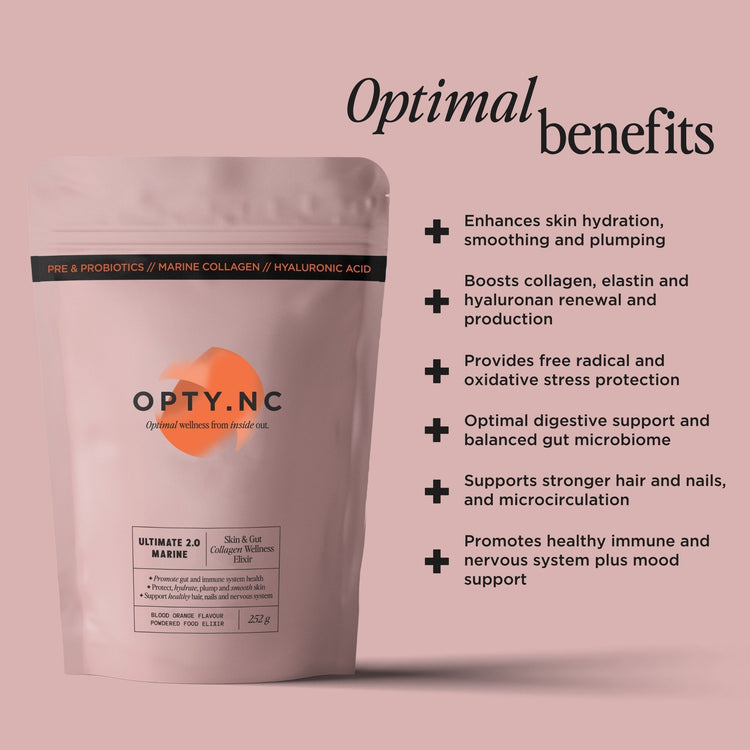As you know by now, we are passionate about all things skin and wellness. One topic that particularly excites us is food and nutrition. As self-proclaimed foodies, we understand the significant impact that a good skin diet can have on your appearance. In this blog post, we will explore the essential nutrients that our skin needs for repair and regeneration, as well as the foods that contain them. By incorporating these foods into your daily routine, you can take control of your skin's health and enhance your natural complexion. So let's dive right in.
The Building Blocks:
Collagen
Collagen, the largest structural component of our skin, plays a crucial role in maintaining its integrity. Comprising 70% of the skin's structure, collagen contributes to its firmness and smoothness. However, as we age, the body produces less collagen, resulting in weakened underlying structures, wrinkles, and sagging (Choudhary, R. K., Swarnkar, S., et al. 2020). By the time we reach 30 years old, collagen turnover begins to slow down, with an annual loss of approximately 1%.
To defy the signs of aging and promote youthful skin, it is imperative to incorporate food and supplement strategies that support collagen production. Whether you're a meat-eater or follow a plant-based diet, there are various options available. Meat lovers can opt for bone broth and indulge in roasts and slow-cooked dishes rich in fat and gristle. Non-meat options include papaya, almonds, cashews, spinach, an array of fruits, mushrooms, pumpkin seeds, and sesame seeds. These foods, particularly those rich in vitamin C and antioxidants, are excellent sources of collagen-building nutrients for vegans and vegetarians. Furthermore, for supplementation, our marine collagen products, such as Ultimate 2.0, Ultimate 3.0, and Collagen Renew, offer an ideal solution to support your collagen needs.

Protein
Maintaining a graceful aging process and nurturing beautiful skin is a goal for many. One crucial element in achieving this is protein consumption, as it plays a vital role in collagen synthesis. Collagen, in turn, relies on essential amino acids that are the building blocks of proteins (Choudhary et al., 2020). Not only does protein intake contribute to collagen production, but it also supports the optimal functioning of the gut, skin, and organs, stabilizes blood sugar levels, sustains energy, and preserves muscle mass. To promote overall well-being, it is recommended that healthy adults consume approximately 1g of protein per kilogram of body weight, with variations based on age and physical activity levels (Dietitians Australia, 2023).
For instance, if you are an adult woman weighing 75 kg and engaging in resistance exercises three times a week, your daily protein goal should encompass around 97g (Dietitians Australia, 2023). Achieving this can be accomplished by incorporating protein-rich foods into every meal, such as eggs, nuts, hummus, chicken, fish, meat, tofu, tempeh, or legumes. Monitoring your protein intake and making adjustments as necessary can be facilitated by utilizing useful tools like My Fitness Pal or Easy Diet Diary. Additionally, introducing supportive measures for digestion, such as ginger tea or lemon water before meals, can optimize nutrient absorption (Dietitians Australia, 2023).

Water
Water, constituting 70% of our total body weight, is a vital component for virtually every bodily function, including maintaining healthy skin. Collagen and hyaluronic acid are essential for skin structure and plumpness, and they rely on adequate hydration. Hyaluronic acid can hold up to 1000 times its weight in water, making hydration the ultimate weapon for graceful aging. Depriving your skin of sufficient moisture can lead to sagging, dullness, and the appearance of larger pores.
An intake of 2-3 liters of filtered water daily is paramount to maintain a healthy, supple and glowing complexion. We say filtered water here as it's not just quantity of water you consume but also the quality that play a role in your skin health and general well-being. Tap water can contain chlorine, microplastics, pesticides, copper, and other nasties from decontaminating the water, as well as from the water’s journey through old pipes and into your home. By filtering your water through a tap or jug, you can protect both your gut bacteria and liver from any potential toxins. This simple act may even help reduce environmental toxin exposure linked to skin conditions like eczema and acne.
Fats
Fats are incredibly important for maintaining healthy skin. They help hydrate the skin, protect against water loss, and protect against damage from toxins and abrasions. Additionally, fats allow essential fat-soluble nutrients such as vitamins A and E to be absorbed for skin repair and turnover (Skin Health Institute, 2023).
To ensure you're getting enough healthy fats, include nutrient-dense oily fish like salmon, trout, or sardines in your diet. You can also incorporate cold-pressed seed oils, nuts, seeds, and sea buckthorn oil. These foods are rich in beneficial fats such as omega-3s, linoleic acid, and omega-7s.
If dry skin is a concern, aim to consume these foods regularly. Additionally, consider supplementing your diet with nutrient-dense supplements, like our Cellular Renew and Ultimate 2.0 + 3.0, which contain Vitamin A and E and Omegas for added skin support.

Vitamins and Minerals
Minerals such as silica and zinc play a vital role in building skin cells and supporting optimal collagen turnover. Insufficient intake of silica and zinc in your diet can result in issues like easy scarring, dry or sensitive skin (like eczema or acne) (Choudhary, R. K., Swarnkar, S., et al. 2020). Including high dietary sources of zinc and silica, along with supplements, can contribute to plump skin and reduce wrinkling. Zinc-rich foods include seafood, meats, nuts, and seeds, while fruits and vegetables are excellent sources of silica. By maintaining a balanced diet rich in whole foods, you can enjoy numerous health benefits due to their diverse and abundant nutrient content.
The Glow Up:
When it comes to maintaining good skin health, including skin elasticity, firmness, and texture, it's important to focus on the right nutrients. In addition, there are other elements you can incorporate into your diet and routine to achieve that healthy, luminous glow.
Antioxidants, such as beta carotene, are known to enhance the yellow and red tones in the skin, promoting an even skin tone and increasing luminosity, or "the glow." Research has shown that antioxidant-rich foods like blueberries, blackberries, kale, broccoli, pumpkin, carrot, tomato and tomato paste, green tea, salmon and trout, mushrooms, turmeric, red cabbage and red onion, avocado, and raw nuts and seeds can improve skin tone and texture (Skin Health Institute, 2023; Choudhary et al., 2020).

In a study conducted on Scottish university students, subjective attractiveness (skin tone and glow) was shown to be dramatically increased by upping their fruit and vegetable intake by just four extra servings of fruits and/or veg per day, for 8 weeks. Students were enrolled into the study, had their picture taken and their skin analysed under special microscopes and were split into two groups; the high vegetable diet group and the normal diet group. The high vegetable diet group ate an increased 4 serves of fruits and veggies per day for the 8 weeks and the normal diet group were not instructed to change anything about their diet or routine. Photos were taken before and after the 8 weeks and skin analyses were conducted weekly (Pappas, M. 2018, Promega Corporation. 2012).
At the 6 week smark, the high vegetable diet group had significantly more reflective skin and more colour tones in their skin, compared to the non intervention group. This was further tested in the final stages of the study where the participant’s images were randomised and shown to a group of people who were told to rank the participant’s appearance based on both healthiness and attractiveness.
Both appearance of healthiness and attractiveness were scored significantly higher in the high vegetable diet group for the photos taken at the end of the 8 weeks. The photos taken at week 1, as well as the normal diet group’s week 8 photos, all ranked significantly lower in their appearance of wellbeing and attractiveness. So, while the literature tells us that antioxidants protect the skin from damage caused by stress, the sun and ageing, antioxidants also make your skin look better in the short term.

You now have a better understanding of how important nutrition is for our skin. By incorporating certain foods into your daily routine, you can promote collagen production, reduce inflammation, and protect against oxidative damage. Remember to include plenty of leafy greens, colorful fruits and vegetables, fatty fish, nuts and seeds, and lean protein sources in your meals. Additionally, don't forget to stay hydrated by drinking plenty of water throughout the day.
References:











